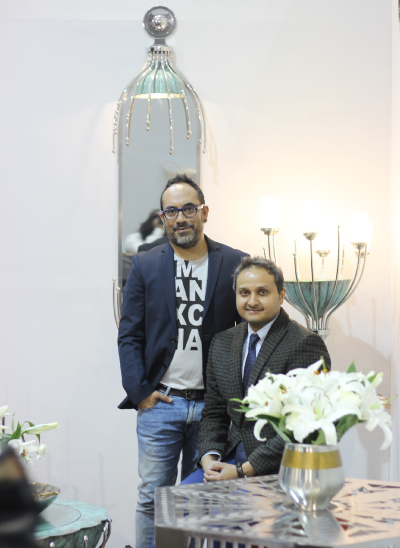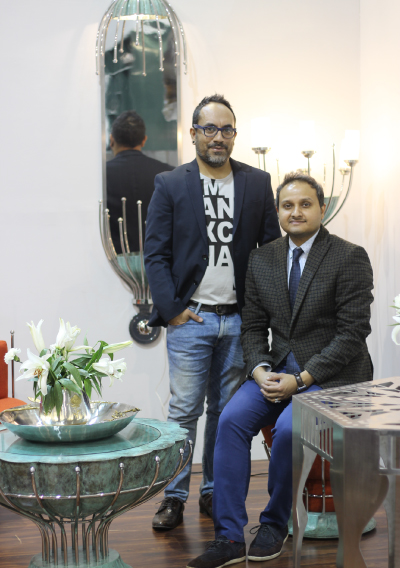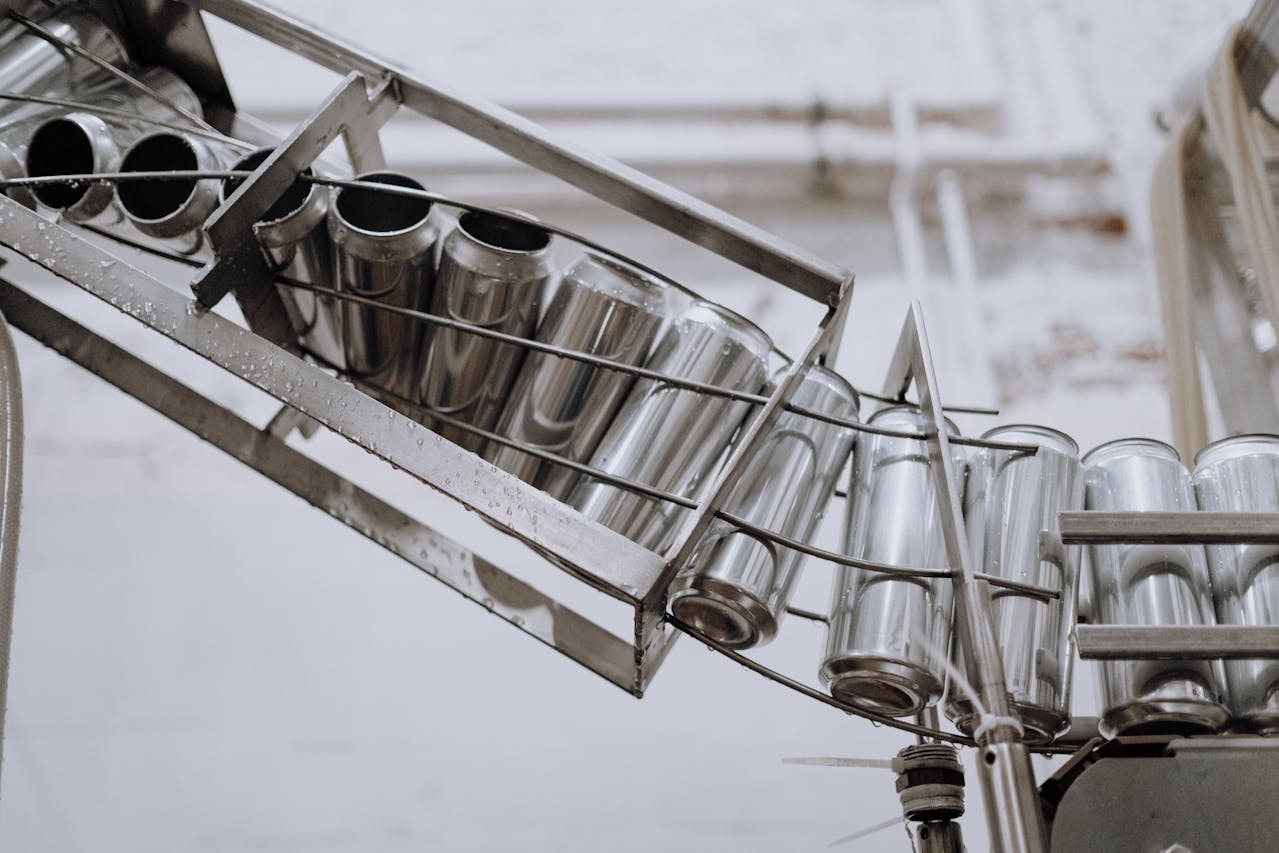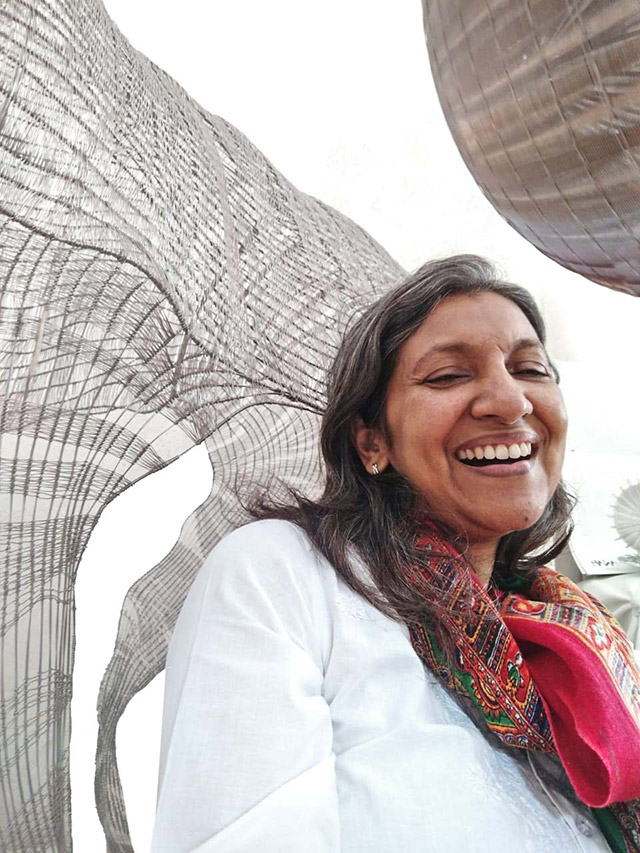Mr Sarthak and Mr Sahil
September 26, 2022
“For me, a product is sustainable when it does not add to the landfills. This is where stainless steel plays a vital role. It is durable, has a long life, is easy to clean and maintain, and is nearly 100% recyclable,” says Founder, Sarthak Sahil Design Co, Sarthak in conversation with Supriya Sundriyal, Corporate Communications. Read about the compelling journey of Sarthak and Sahil, two designers, who are creating beautiful and sustainable art from stainless steel.

Please tell us about yourself.
I co-founded Sarthak Sahil Design Co in 2009 with the strong belief that ethic, ethnic and ecology can be interwoven with our contemporary lifestyle. We design products and interiors that are beautiful, functional, and sustainable. Our expertise lies in customizing products, furniture, lighting and installations by the innovative use of Indian craftsmanship and materials to furnish contemporary spaces such as boutique hotels, high-end homes, and landmark restaurants.
Before we incepted our studio, we were studying products and design. Sahil has done his Bachelors in Applied Arts from Delhi College of Arts, and I have perused Product & Lifestyle Design from NIFT, Delhi. Both of us were fortunate enough to meet in Milan while pursuing Master’sinProduct Service System Design from The Politecnico di Milano.
As soon as we completed our Master’s, we both had the opportunity to work for the famous Italian furniture brand – Cappellini SpA under the guidance and mentorship of Giulio Cappellini. The brand wanted to launch itself in the Indian market, and we had the wholesome opportunity to explore the Indian Craft Sector in that process. This got us interested in exploring the Indian crafts sector along with ingenuous materials. We wanted to reinterpret the dying Indian Craft and remodel it for modern-day living.
What is the significance of stainless steel in your field of work? Tell us about some of your projects where you have used stainless steel.
Stainless steel is all about being hygienic and clean, easy to maintain, and to be mainly used in public places such as offices, hospitals, bus stops, etc. We saw this as an opportunity to make stainless steel more appropriate for an individual’s living or home space. Indian craft is immensely hands-on and each craft from any part of the country has a beautiful human story. We wanted to celebrate the collaboration of the Indian Crafts with stainless steel and carve out some meaningful stories.
We have collaborated with Jindal Stainless’ lifestyle subsidiary JSL Lifestyle Limited, and have worked on curating collections for their flagship brand- Arttd’inox. We crafted four beautiful collections inspired by the state of Gujarat and driven by the motive of sustainability: Kutch Collection, Sarafa Collection, Adalaj Collection, Ajrakh Collection.

What is your take on sustainable designing? How can stainless steel help a country achieve it?
For me, sustainability is all about the product’s lifecycle and how it begins and ends. A few of the questions that come to my mind about sustainability of the product is: How is it extracted? What is the production process – is it ethical, safe, and with minimum wastage? and then finally the product itself – Is it sustainable? Or will it just be another fast-fashion product that goes out of fashion as soon as it is purchased? Also, for me, a product is sustainable when it does not add to the landfills. This is where stainless steel plays a vital role. It is durable, has a long life, is easy to clean and maintain, and is nearly 100% recyclable. I would also like to add an anecdote here when we were trying to build a chair from stainless steel for one of our collections with Arttd’inox. The form of the chair was inspired by a motif from the Indian Craft. It was curvaceous like most Indian Motifs, and at the prototype and sampling stage, we realized that two halves of the chair needed to be smouldered to be attached. This required time and labour force. Therefore, instead of that, we opted for ‘Spot Welding’ – which requires less time and labour force. The new technique was also used as a surface decoration. We used the intricacies of the technique to perfect the chair. It also helped us in increasing the perceived value of the final product as we used the same as an asset to the product. Hence, our collection was sustainable. We saved the production time and the cost, which otherwise was increasing.

Since when have you been associated with Jindal Stainless? How has your journey been like?

We started our association with Arttd’inox in 2013, nearly ten years ago.
Our first collection was titled ‘Ferragami’. It was inspired by the Banjara craft of Rajasthan, followed by our collections inspired by the state of Gujarat – Kutch Collection, Sarafa Collection, Adalaj Collection, and Ajrakh Collection in 2016.
Any message that you would like to give to the budding architects and designers?
My message to all budding designers and architects is to make meaningful products that capture and encapsulate the human story. That is the most important work that a designer or an architect can do. When we know the story behind a product – what, why, how, the inspiration, the motivation, etc. – we immediately connect with it and the relevance increases for both, the maker and the buyer.





